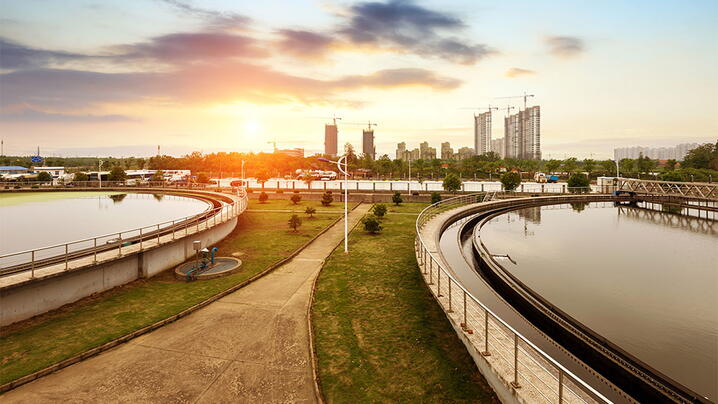
by Mati Bazurto, business operations manager, Bowie, Maryland
Recently, I was asked to define sustainability in as few words as possible. I debated this question internally for what seemed like hours until I finally settled on the old proverb of “waste not, want not.” I was then asked to explain. My answer, “If you use resources wisely, future generations will be able to enjoy them as well. Added bonuses, better quality of life for all and an environment with a smaller human footprint.” Next question asked, “How can we be sustainable?” At first, I said “easy.” Then as I thought more on the subject, I realized not so easy. Sure, we can say words like recycle, renewable energy, microgrids, electric vehicles, composting, etc., but what does this really mean? Who is going to this? How is this going to happen? Will people get on board with sustainability? At this point, I looked around the room at all the faces waiting for me to respond and said “Maybe not so easy, but there are many who are willing to take up the sustainability baton and run with it. Not because this is trending on some social media outlet or because this is the topic of the year. People are practicing sustainability because many of us have realized that if we do not do something now, tomorrow may be too late.”
As I researched sustainability for my talk, I encountered an abundance of resources, programs, ordinances, and best practices used by municipalities across the country. So much so that I became lost in a forest of sustainability. I decided to focus on water, air, and energy.
Water, a resource seen by many as never ending, is always there.
I mean, the earth is about 71% water, right. Our oceans hold 97% of the earth’s water. Unfortunately, the reality is that 2.1 billion people have unsafe drinking water, 1.9 billion live in areas where water is scarce, 71% of the world’s natural wetlands have been lost since 1900, and 80% of the world’s dirty wastewater flows back into the environment. In an effort to combat some of these statistics, many municipalities and nonprofit organizations have created programs in water conservation and wastewater management; everything from low-volume plumbing fixtures to recirculating cooling systems to managed landscaping water use to reclaimed water use for crop irrigation. The World Bank, among other groups, has also researched water conservation and wastewater management as it pertains to economic development. I could go on about H2O, but what about air quality.
What do we mean by air quality?
When I think of air quality, I immediately envision factories with huge smoke stacks billowing out pollution into the air. I think of smog hovering over urban areas and people walking around with dust masks. However, according to the EPA, the air quality in the United States is improving. Emissions are decreasing, unhealthy air quality days are trending down, and air pollutant concentrations have decreased. So how are municipalities contributing to this positive turn of events? In St. Louis, Missouri, they have a No-Idling Ordinance. In Berkeley, California, they have a policy on Dioxin Pollution Reduction. In Chattanooga City, Tennessee, they have an all-encompassing Air Pollution Control Ordinance. Besides ordinances that regulate how and what goes into the air, many municipalities have also looked to electric vehicle fleets and infrastructure as ways to reduce their impact on air pollution. Precautionary warning, electric vehicles many not contribute to emission, but the electricity needed to charge said vehicles does, so EVs charged by renewable energies is the way to go. Charging stations sourced by solar? Just a thought.
Now this leads to my final topic.
Energy.
By far one of the most extensive subject matters under sustainability. I could write tomes on the subject, but as a municipal employee, well, you know, time is always scarce. Therefore, I want to focus on innovation. I have read much on some of the revolutionary renewable energy sources used by cities in the United States and around the world. Cities are harnessing wave power, using algae as biodiesel fuel, using buoyant airborne turbines, developing solar thermal combination projects, and even investing in solar pv cells powered by bacteria. Currently, off the island of Oahu in Hawaii, wave power technology is being tested as an alternative source of electricity. States in the southwest have begun to implement innovative energy efficiency projects that encompass everything from building retrofits to energy smart loans. In addition, according to the Sierra Club, there are over 100 cities committed to being powered by 100% renewable energy and about seven cities that are powered by 100% renewable energy sources. Truly, many of our cities are leading the way the innovation of energy source alternatives.
Therefore, as I look back at all that I read about sustainability, I am reminded of my parting words in the room full of people asking all those questions. As I said to them then and as I say know, “Sustainability is not a choice, it is a way life. We cannot blindly go forth without realizing the impact that our footprint leaves on future generations. We, the municipalities, cities, counties, states, and countries are the stewards of today and tomorrow’s resources.”
 Ms. Bazurto has extensive experience in the government and public sector. Before coming to work for the city of Bowie as the business operations manager, she served as the city’s chairperson for the Green Team. During her time on the Green Team Executive Committee, she participated in the development of the city’s sustainability plan. Prior to working for Bowie, she was the director of membership and program services for the Latino Federation of Greater Washington. Before work with LFGW, she was legislative aide to Maryland Delegate Ana Sol Gutierrez. For over 15 years, she worked as a grassroots activist for civil rights, environmental protection, and advocated for children and literacy. She served on the board of directors of the Council of Latino Agencies, the Latino Civil Rights Task Force. She also served on the Latino Congressional Advisory Committee under Congresswoman Eleanor Holmes-Norton. In 2009, she was recognized and honored by the U.S. Congress for her extensive work in the Latino community. She has a B.A. in political science and economics, and a M.A. in international political science.
Ms. Bazurto has extensive experience in the government and public sector. Before coming to work for the city of Bowie as the business operations manager, she served as the city’s chairperson for the Green Team. During her time on the Green Team Executive Committee, she participated in the development of the city’s sustainability plan. Prior to working for Bowie, she was the director of membership and program services for the Latino Federation of Greater Washington. Before work with LFGW, she was legislative aide to Maryland Delegate Ana Sol Gutierrez. For over 15 years, she worked as a grassroots activist for civil rights, environmental protection, and advocated for children and literacy. She served on the board of directors of the Council of Latino Agencies, the Latino Civil Rights Task Force. She also served on the Latino Congressional Advisory Committee under Congresswoman Eleanor Holmes-Norton. In 2009, she was recognized and honored by the U.S. Congress for her extensive work in the Latino community. She has a B.A. in political science and economics, and a M.A. in international political science.
Other Links of Note for Sustainability
Sustainability topic page. Find case studies, original research, and reports that feature sustainability initiatives from communities around the world.
Identifying Opportunities in Operations Management to Reach Your Sustainability Goals. Municipal operations provide an opportunity to reduce the impact on human and environmental health.
21st Century Opportunities and Challenges for Municipal Water Utilities. Integrating physical and digital infrastructure achieves optimal utility performance.
Infographic: Energy Efficiency Checklist for Local Governments. A printable checklist with simple steps to improve energy efficiency in communities.
New, Reduced Membership Dues
A new, reduced dues rate is available for CAOs/ACAOs, along with additional discounts for those in smaller communities, has been implemented. Learn more and be sure to join or renew today!
